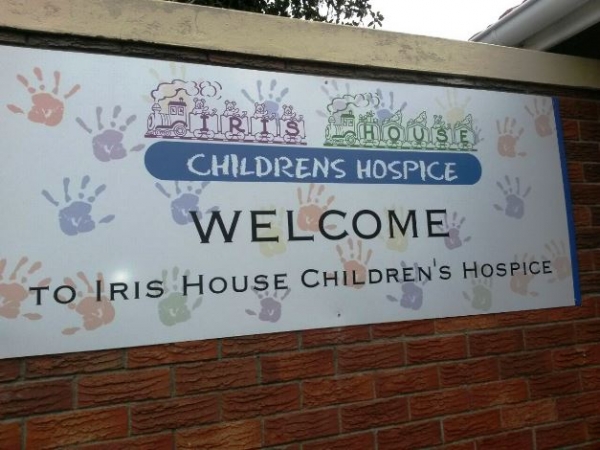Iris House provides free, community-based care for special needs children

South Africa’s first Children’s Hospice and Palliative Care Association will be launched later this year, according to the founder of Iris House Children’s Hospice Sue van der Linde.
Van der Linde has for the past decade been instrumental in lobbying for improved legislation around the rights of children with special needs in South Africa.
“We are really trying to get our government to change how they view special needs age groups, because certain policies and rules don’t apply to our kids. There are currently people in the UK laying out the first drafts for us and hopefully we will have it up and running by the end of the year,” Van der Linde said.
She said that while Iris House – the only children’s hospice of its kind in the country – was affiliated to the Hospice and Palliative Care Association, the association is not specifically for children with special needs and cannot provide the necessary oversight.
“We don’t really fit in with them because they deal with HIV/AIDS, TB and Cancer, not with special needs. We don’t fit their criteria, so we aren’t getting assistance from them at all. We have been feeling our way through most of the paperwork, but I want to make it easier for others to also open a facility just like this one in the future. Something as simple as registering our building with the Western Cape Department of Social Development (DSD) was a challenge, because no one knew what it fell under,” she said.
Van der Linde started Iris House in June 2011 after working at a children’s hospice in the UK for eight years.
“When I came back home to Cape Town, I wanted to offer my help and work at another hospice like it. I very quickly discovered there wasn’t any [such facility]. I then decided something needed to be done,” she said.
Iris House offers services like therapy and day care at no cost for children with special needs which range from cerebral palsy to severe autism.
“Our website says our age group ranges from 0 to 18, however, our oldest child is 44 years old with the cognitive ability of a 10-year-old. His parents are in their 80s and they are terrified about what will happen to him when they are gone,” she said.
The Hospice recently opened the doors to its new facility in Parow which was donated by DSD.
“We started off with six families and now we have 162 registered families. Everything we do is free. We started with community-based care which is still our mainstay. The idea is that children come in from outreach programs in Mfuleni, Khayelitsha, and the northern suburbs,” she said.
Van der Linde said that before children are accepted into their programme, a full assessment is done with both the child and the caregivers.
“We also do a health and safety inspection at the house. Each assessment plan is different, [done] according to each child’s needs. Our carers also go through frequent internal training with us. When we have a child with more complicated needs or who suffers from seizures, we send two carers to assist with care,” she said.
Sitting in the daycare room filled with a variety of toys, colourful paintings and pictures of storybook characters, Van der Linde said they catered for children who were not placed in a school.
“These children either can’t fit in at school, the schools are full or they can’t afford a school and are sitting at home as a result. The kids then come here and we do physiotherapy and a lot of play therapy. The main challenge has been getting the children to our facility. At the moment we are covering travelling [expenses], but that can become very costly. So we are now looking to buy our own vehicle and employ a driver which will work out better,” she said.
Van der Linde said that while plans to expand the facility were in the pipeline, funding remained a challenge.
“32% of our funding comes from DSD and we raise the balance. So we depend on a huge chunk to come through public and corporate donations, or our very busy events calendar. We would love to expand one day, but we first want to prove without a doubt that this model works and iron out any kinks. National government asked us to take our community based care model to other provinces in 2016, something we are more than happy to do,” she said.
Find out more about Iris House here.
Next: Should Blikkiesdorp move, or the airport?
Previous: Coping with chronic epilepsy while living in a shack: one family’s story

This article is licensed under a Creative Commons Attribution-NoDerivatives 4.0 International License.


